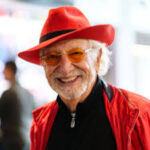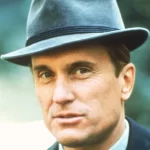- Home
- Billionaires
- Investing Newsletters
- 193CC 1000
- Article Layout 2
- Article Layout 3
- Article Layout 4
- Article Layout 5
- Article Layout 6
- Article Layout 7
- Article Layout 8
- Article Layout 9
- Article Layout 10
- Article Layout 11
- Article Layout 12
- Article Layout 13
- Article Layout 14
- Article Sidebar
- Post Format
- pages
- Archive Layouts
- Post Gallery
- Post Video Background
- Post Review
- Sponsored Post
- Leadership
- Business
- Money
- Small Business
- Innovation
- Shop
Recent Posts
The Visionary Storyteller: Steven Spielberg’s Journey Through Cinema

Steven Spielberg, one of the most celebrated filmmakers of all time, has carved a legacy that transcends generations. From pioneering blockbuster films to crafting intimate narratives, Spielberg’s extraordinary ability to blend technical innovation with emotional storytelling has made him a towering figure in the world of cinema. Born on December 18, 1946, in Cincinnati, Ohio, Spielberg’s journey from an enthusiastic young filmmaker to an industry icon is a testament to his unrelenting passion for storytelling and his profound understanding of the human experience.
Spielberg’s fascination with filmmaking began at a young age. Armed with an 8mm camera, he created amateur films and short features, often casting his friends and family. His earliest efforts, such as a World War II film titled Escape to Nowhere, revealed his knack for visual storytelling. Spielberg’s talent caught the attention of Universal Studios, leading to his first professional project, the 1968 TV film Amblin’. The success of this short film not only won him accolades but also secured him a contract with Universal, marking the start of a groundbreaking career.
The release of Jaws in 1975 was Spielberg’s first major leap into mainstream cinema. A thrilling tale of a man-eating shark terrorizing a small coastal town, Jaws not only broke box-office records but also established the concept of the modern blockbuster. Spielberg’s innovative use of suspense, combined with John Williams’ iconic score, turned Jaws into a cultural phenomenon. This success solidified Spielberg’s reputation as a director who could blend artistic vision with commercial viability.
Spielberg’s next ventures continued to captivate audiences and critics alike. With films such as Close Encounters of the Third Kind (1977), E.T. the Extra-Terrestrial (1982), and the Indiana Jones series, he demonstrated a remarkable ability to tap into the collective imagination. E.T., in particular, showcased Spielberg’s talent for crafting deeply emotional narratives. The heartwarming story of a young boy befriending an alien captured the essence of childhood wonder and became one of the highest-grossing films of all time.
While Spielberg became synonymous with blockbuster entertainment, his body of work also explored darker, more complex themes. Films like Schindler’s List (1993) and Saving Private Ryan (1998) reflected his maturity as a filmmaker. Schindler’s List, a harrowing portrayal of the Holocaust, earned Spielberg his first Academy Award for Best Director and remains one of his most critically acclaimed works. Its raw, unflinching depiction of humanity’s darkest chapters demonstrated Spielberg’s ability to tackle profound subjects with sensitivity and depth.
Saving Private Ryan further cemented Spielberg’s mastery of historical drama. The film’s opening D-Day sequence, renowned for its visceral realism, set a new standard for war cinema. Spielberg’s dedication to authenticity, coupled with his focus on the human cost of conflict, created a deeply impactful cinematic experience. Both Schindler’s List and Saving Private Ryan showcased Spielberg’s versatility and his commitment to storytelling that resonates on both personal and universal levels.
Spielberg’s collaborations with renowned actors, writers, and composers have also played a pivotal role in his success. His long-standing partnership with composer John Williams has resulted in some of the most memorable film scores in history. From the haunting melodies of Schindler’s List to the adventurous theme of Indiana Jones, Williams’ music has been an integral part of Spielberg’s cinematic language.
In addition to his directorial achievements, Spielberg has been a visionary producer, founding Amblin Entertainment and co-founding DreamWorks Pictures. These ventures have allowed him to support a wide range of films and television projects, fostering new talent and expanding his influence in the industry. His work as a producer includes hits like Back to the Future (1985), Who Framed Roger Rabbit (1988), and Jurassic Park (1993), further demonstrating his ability to shape popular culture.
Spielberg’s impact on the film industry extends beyond his box-office successes. As a pioneer of new technologies, he has pushed the boundaries of visual effects and filmmaking techniques. Jurassic Park, for instance, revolutionized the use of CGI, setting a benchmark for future films. Spielberg’s willingness to embrace innovation has ensured his relevance in an ever-evolving industry.
Despite his monumental achievements, Spielberg remains deeply committed to storytelling that reflects the human experience. His later works, such as Lincoln (2012) and The Post (2017), delve into themes of leadership, morality, and the power of journalism. These films underscore Spielberg’s ability to craft thought-provoking narratives that resonate with contemporary audiences.
Beyond his cinematic contributions, Spielberg has been an advocate for social causes and education. He established the Shoah Foundation, dedicated to preserving the testimonies of Holocaust survivors, ensuring that future generations learn from history. His philanthropy and activism highlight his commitment to using his platform for the greater good.
Spielberg’s enduring legacy lies not only in his remarkable filmography but also in his ability to inspire audiences and fellow filmmakers. His influence can be seen in the works of countless directors who have followed in his footsteps, blending entertainment with emotional depth. Spielberg’s films have become cultural touchstones, reflecting the dreams, fears, and aspirations of generations.
As one of the most prolific directors in history, Steven Spielberg continues to captivate audiences with his storytelling prowess. Whether exploring the vast reaches of space, the depths of human resilience, or the magic of everyday life, Spielberg’s films remind us of the power of cinema to move, entertain, and unite. His contributions to the art form have not only redefined filmmaking but have also left an indelible mark on the cultural fabric of the world.
- blockbuster films
- cinematic legacy
- cinematic storytelling
- Close Encounters of the Third Kind
- DreamWorks
- E.T.
- family themes in movies
- filmmaking
- historical dramas
- Hollywood director
- iconic movies
- Indiana Jones
- Jaws
- John Williams collaboration
- Jurassic Park
- movie directing
- Saving Private Ryan
- Schindler’s List
- Shoah Foundation
- Spielberg movies
- Spielberg’s awards
- Spielberg’s awards and honors
- Spielberg’s biography
- Spielberg’s career
- Spielberg’s collaborations
- Spielberg’s contributions
- Spielberg’s early life
- Spielberg’s family
- Spielberg’s future projects
- Spielberg’s historical films
- Spielberg’s impact
- Spielberg’s influence
- Spielberg’s innovation
- Spielberg’s inspiration
- Spielberg’s journey
- Spielberg’s legacy
- Spielberg’s life story
- Spielberg’s personal life
- Spielberg’s philanthropy
- Spielberg’s storytelling
- Spielberg’s style
- Spielberg’s success
- Spielberg’s technology
- Spielberg’s themes
- Spielberg’s visual style
- Steven Spielberg
- visionary director
Recent Posts
Categories
- 193 Countries Consortium Partner1
- 193cc Digital Assets2
- 5G1
- Aerospace & Defense48
- AI37
- Arts3
- Banking & Insurance11
- Big Data3
- Billionaires1,019
- Boats & Planes1
- Business332
- Careers13
- Cars & Bikes79
- CEO Network1
- CFO Network17
- CHRO Network1
- CIO Network1
- Cloud10
- CMO Network18
- Commercial Real Estate7
- Consultant1
- Consumer Tech194
- CxO1
- Cybersecurity73
- Dining1
- Diversity, Equity & Inclusion4
- Education7
- Energy8
- Enterprise Tech29
- Events11
- Fintech1
- Food & Drink2
- Franchises1
- Freelance1
- Future Of Work2
- Games149
- GIG1
- Healthcare79
- Hollywood & Entertainment203
- Houses1
- India’s 1000 Richest1
- Innovation46
- Investing2
- Investing Newsletters4
- Leadership65
- Lifestyle11
- Manufacturing1
- Markets20
- Media195
- Mobile phone1
- Money13
- Personal Finance2
- Policy569
- Real Estate1
- Research6
- Retail1
- Retirement1
- Small Business1
- SportsMoney42
- Style & Beauty1
- Success Income1
- Taxes2
- Travel10
- Uncategorized12
- Vices1
- Watches & Jewelry2
- world's billionaires987
- Worlds Richest Self-Made Women3
Related Articles
Min Kao: Pioneer of GPS Technology and Visionary Entrepreneur
Min Kao, cofounder of Garmin, is a name synonymous with innovation in...
By 193cc World's BillionairesJanuary 8, 2025Dewi Kam: A Wealth Built on Coal and Energy
Dewi Kam is a prominent figure in Indonesia’s business landscape, with her...
By 193cc World's BillionairesJanuary 8, 2025The Legacy of Rupert Johnson, Jr.: A Pillar of Franklin Resources
Rupert Johnson, Jr. is a towering figure in the world of investment...
By 193cc World's BillionairesJanuary 8, 2025The Remarkable Life of Thomas Hagen
Thomas Hagen is a name synonymous with dedication, leadership, and philanthropy. As...
By 193cc World's BillionairesJanuary 8, 2025















Leave a comment